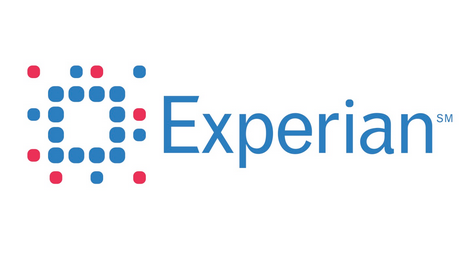
 It’s no surprise that cybercrime and data breaches are hot topics for media and bloggers these days.
Unfortunately, because of all the attention paid to these topics, we’ve seen some inaccurate information about Experian circulating in news outlets and other Web sites.
I want to take a moment to clarify the facts and events, including Experian’s involvement in the case involving Court Ventures, a company that collects and aggregates information from public records; US Info Search, a company that provides location and other data for people and companies; and a criminal named Hieu Minh Ngo.
It’s no surprise that cybercrime and data breaches are hot topics for media and bloggers these days.
Unfortunately, because of all the attention paid to these topics, we’ve seen some inaccurate information about Experian circulating in news outlets and other Web sites.
I want to take a moment to clarify the facts and events, including Experian’s involvement in the case involving Court Ventures, a company that collects and aggregates information from public records; US Info Search, a company that provides location and other data for people and companies; and a criminal named Hieu Minh Ngo.

Santander, one of the UK's leading providers of current accounts, mortgages, loans and savings products, has signed a five year contract for the deployment of Experian’s Originations and Customer Management products on their PowerCurve™ platform, to support its customer acquisitions and portfolio monitoring processes. The PowerCurve Originations and PowerCurve Customer Management solutions will help Santander support customer acquisitions and portfolio review processes across their retail and business banking products The PowerCurve platform allows Santander the ability to create unique profiles for each of its customers, encompassing each customer’s entire relationship with the business. This includes scores and metrics for risk, affordability, profitability, propensity to pay and lifetime value. Mark Staveley, Chief Credit Officer at Santander UK, comments: "The ability to share strategies across products, portfolios and lifecycle stages was pivotal to our software selection and partner of choice. We were looking for a partner with proven experience of delivering highly complex, large scale credit risk infrastructure projects under demanding timescales, and to work in an integrated manner with the business. We selected Experian because of the business’ ability to meet our requirements and experience in undertaking platform hosting solutions." You can read the full Santander press release here: http://bit.ly/1jDyHYR

Pinterest is the top social media traffic driver for retailer Websites; Amazon.com is the top source of traffic from social sites. According to new research from Experian Marketing Services, a global provider of integrated consumer insight, targeting, data quality and cross-channel marketing, social media Websites are playing an increasingly important role in driving traffic to other Websites, including retail Websites and even other social networking sites, at the expense of search engines and portal Websites. As of March 2014, social media sites now account for 7.72 percent of all traffic to retail Websites, up from 6.59 percent in March 2013. Further, Pinterest, more than Facebook or YouTube, is supplying the greatest percentage of its downstream traffic to retail sites. This trend, among others, is highlighted in Experian Marketing Services’ recently released 2014 Digital Marketer: Benchmark and Trend Report. The report is an annual go-to resource for marketers looking for key industry benchmarks, insights, technology trends and consumer data. “While search still dominates, social media is becoming a significant source of traffic across the Internet as consumers increasingly use sites like Facebook, Pinterest or YouTube more as discovery platforms,” said Bill Tancer, general manager of global research, Experian Marketing Services. “Many of today’s marketers are leveraging the power of social communities to increase customer engagement and expand their brand’s reach. For retailers, all eyes are on Pinterest.” According to the report, more retailers are directing their customers to social media within their email campaigns. Ninety-six percent of marketers now promote social media in their emails, and in 2013, Pinterest had the greatest year-over-year increase. Pinterest is now being promoted by 64 percent of brands within emails. Amazon.com is the top source of downstream traffic from Pinterest, Facebook and YouTube After visiting Facebook, YouTube or Pinterest, consumers are visiting Amazon.com more frequently than any other retailer Website. The top five retail sites downstream from Facebook: Amazon.com Walmart Zulily Target Beyond the Rack The top five retail sites downstream from Youtube: Amazon.com Walmart GameStop Crutchfield Target The top five retail sites downstream from Pinterest: Amazon.com Target Zulily Walmart Nordstrom “Social media continues to grow as an influential source of traffic for retail sites, and it’s important that marketers understand what is driving customers to their Web page,” said Tancer. “Amazon is clearly benefitting from this trend across all of the major social networks. Meanwhile, gaming and electronic retailers GameStop and Crutchfield are top downstream sites for YouTube, which is likely due to enthusiasts sharing videos of game performance and setup, and how-to videos for electronic enthusiasts.” Social drives more traffic to other social Websites In addition, social media Websites increasingly are responsible for driving traffic to other social sites. Upstream traffic from social networking Websites rose 20 percent in 2013 over 2012. Despite still driving the greatest share of traffic to social networking sites at 39.1 percent, search engines’ share declined 13 percent year-over-year. Upstream industries visited before social networking and forum sites 2013 versus 2012 Industry Click share 2013 Year-over-year difference Search engines 39.1% -13% Social networking and forums 15.1% 20% Email services 8.4% 18% Portal front pages 5.4% -41% Multimedia 5.0% 41% Games 2.5% 16% Software 1.6% 16% Television 1.6% 74% Reference 1.2% 28% Department stores 1.1% 48% Source: Experian Marketing Services’ 2014 Digital Marketer: Benchmark and Trend Report The 2014 Digital Marketer: Benchmark and Trend Report is available via a free download at http://ex.pn/PpijOx. The 2014 Digital Marketer webcast hosted by Bill Tancer can be viewed at: http://ex.pn/P2IFFd.


